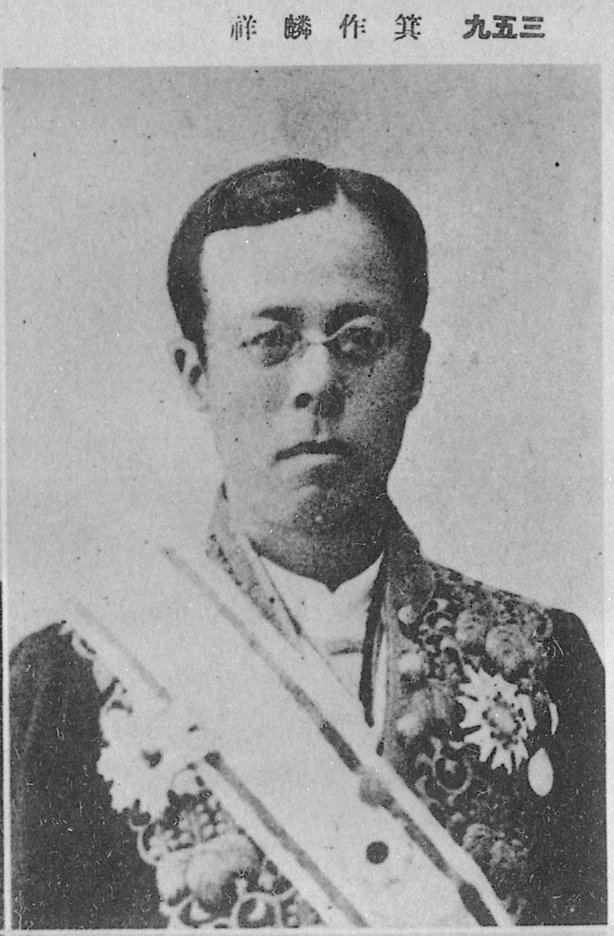<Back to Index>
- Statesman and Scholar Mitsukuri Rinsho, 1846
- Educator and Philosopher Nakamura Masanao, 1832
PAGE SPONSOR

Baron Mitsukuri Rinshō (箕作麟祥, September 19, 1846 – November 29, 1897) was a Japanese statesman and legal scholar in Meiji period Japan.
Mitsukuri was born in Edo (present day Tokyo) to a noted family of scholars working for the Tokugawa bakufu. He studied rangaku and received a posting to the Bansho Shirabesho, the Shogun's research institute for foreign technology. In 1867, he was selected to accompany the Shogunate's expedition to the Paris World Exposition, which proved to be an eye opener.
On his return to Japan, Mitsukuri joined the new Meiji government as a translator. He worked closely with foreign advisors from France, especially Gustave Emile Boissonnade de Fontarabie, on drafting Japan's new commercial law and civil law codes. He also served on the Genrōin, and was active in the Meirokusha.
He later served as Vice Minister of Justice from 1888 – 1889, the House of Peers and as chief justice of the Administrative Court. He was also president of Wafutsu University, the predecessor of Hosei University. Shortly before his death, he was ennobled with the title of danshaku (baron) under the kazoku peerage system.
Nakamura Masanao (中村 正直, 24 June 1832 – 7 June 1891) was a Japanese educator and leader during the Meiji period. He also went by his pen name of Nakamura Keiu.
Born to a samurai family in Edo, Nakamura was originally a Confucian scholar. He was selected by the Tokugawa bakufu to study in Great Britain, where he mastered the English language.
On his return to Japan, he translated Self - Help, by Samuel Smiles, and On Liberty, by John Stuart Mill into Japanese. Both works proved to be tremendously popular.
He taught at the Tokyo Imperial University, founded a school, Dojinsha, and headed what later became the Ochanomizu University.
Nakamura was one of the first prominent Japanese philosophers to convert to Christianity, which he tempered with Confucian humanism and belief in the innate goodness of humanity. He viewed Christianity as the foundation for the military and economic strength of the western nations, and stated that Japan needed to discard its traditional beliefs as a necessary step in strengthening the nation. In this, he was one of the more radical members of the original circle of philosophers in the Meirokusha.